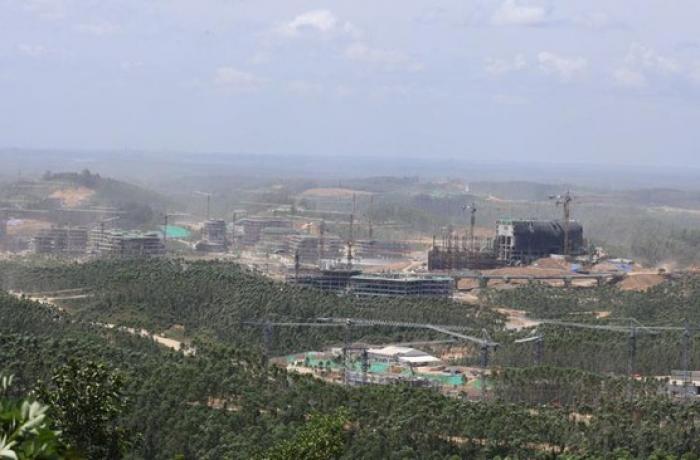Outgoing President Joko Widodo signed a decree to this effect. But despite the government’s efforts, foreign investors have been reluctant to get involved in the project. Widodo’s successor, President Prabowo, does not seem keen to make the new capital a priority. The transfer of the first administrative offices, scheduled for this month, has been postponed.
Jakarta (AsiaNews) – After events linked to the inauguration of Indonesia’s new capital, Nusantara, were scaled back or postponed, President Joko Widodo signed a presidential decree granting 190-year land leases to Indonesian and international investors.
The Indonesian government will only cover 20 percent of the total cost of building the new capital, with the rest coming from the private sector, President Widodo said, which prompted him to visit the United Arab Emirates on July 15 to recruit new investors to fund the project.
The Indonesian president is also trying to clean up Nusantara’s image after some of the key figures involved in its development resigned and the government cannot explain why.
In early June, the project’s head, Bambang Susantono, a former Asian Development Bank official, and his deputy, architect Donny Rahajoe, resigned without explanation.
Following Jokowi’s announcement, Indonesian social media was flooded with sarcastic posts claiming that Ibu Kota Nusantara (IKN, the Indonesian name for the capital of Nusantara) was “for sale.” Several Indonesian lawmakers slammed the president’s decision, calling it a “poor marketing ploy.”
Joko Widodo’s decision to grant 190-year land leases to investors will cause serious problems, the Center for Economic and Legal Studies (CELIOS) has warned, with few companies keen to invest in the country, according to CELIOS researcher Jaya Darmawan.
“Financial returns and business risk are important issues for any investor,” Darmawan explains, but “issues that are essential to life are also important. [are] This is a serious concern for all parties involved.”
The new capital, expected to cover an area of around 2,000 square kilometres, will be built in East Kalimantan province, replacing Jakarta, which is plagued by pollution, devastating floods and overcrowding.
The project was estimated to cost 460 trillion rupiah ($35 billion), but less than 48 trillion rupiah had been raised by January this year, according to the government agency in charge of the project.
Initial plans had called for the relocation of some government offices, including the presidential palace, this month, but Jokowi himself acknowledged that water and electricity supplies are still not in place and are unlikely to be restored before the end of the month.
Last week, President Joko Widodo blamed heavy rains for the delays, saying it was “common in large-scale projects,” but some experts believe it could take 20 to 30 years for the city to be fully functional.
The area chosen is prone to malaria and flooding and is inhabited by indigenous people, and few civil servants are keen to relocate 1,200 kilometres from Jakarta.
Nevertheless, the new capital’s opening ceremony will go ahead as scheduled on August 17, Indonesia’s Independence Day, albeit on a scaled down scale.
Some commentators say the ceremony will be largely symbolic, led by outgoing President Joko Widodo and his successor, President-elect Prabowo Subianto (due to be inaugurated in October), while outgoing Vice President Ma’ruf Amin and his successor, Vice President-elect Gibran Rakabuming Raka (Joko Widodo’s son), will preside over a transition ceremony in Jakarta.
Prabowo has yet to discuss a move to Nusantara with his team, despite publicly stating that he wants to continue with the project.
People familiar with the matter said construction on the capital is likely to move forward at a much slower pace because, at least for now, it is not a priority for the next president.


